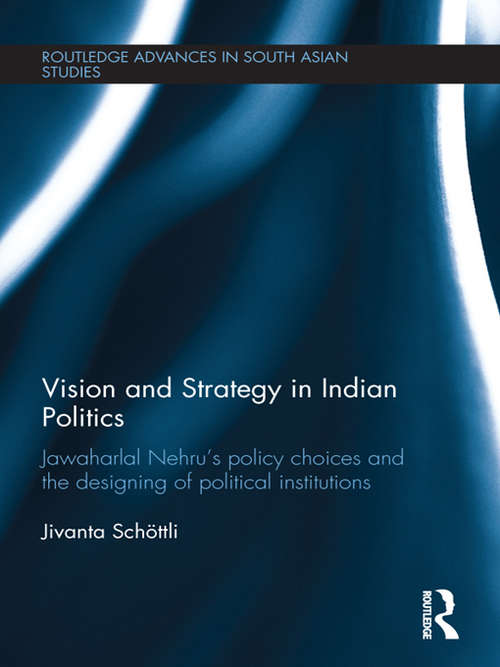Vision and Strategy in Indian Politics: Jawaharlal Nehru’s Policy Choices and the Designing of Political Institutions (Routledge Advances in South Asian Studies)
By:
Sign Up Now!
Already a Member? Log In
You must be logged into Bookshare to access this title.
Learn about membership options,
or view our freely available titles.
- Synopsis
- The 1950s in India were a crucial transition phase where the legacy and institutions of British rule had to be transformed to fit the needs of a post-colonial state. This period is closely associated with India’s first Prime Minister, Jawaharlal Nehru (1947 – 64). Selecting three key policies closely associated with him, the book traces the political origins of the Panchasheela Agreement with China in 1954, the Hindu Code Bills of 1955 and 1956 and the founding of the Planning Commission in 1950. Each provides a window into the compulsions of Indian domestic politics at the time as well as the parameters of parliamentary debate. The book goes on to discuss how these policies correspond to the pillars of Nehru’s vision for a modern, independent India that encapsulated socialism, nonalignment and secularism and assesses their long-run impact in Indian politics. With a growing recognition of the resilience of India’s political arrangements, the analysis is particularly relevant to those interested in the politics of transition and modernisation, and contributes to studies on Political Institutions and South Asian Politics.
- Copyright:
- 2012
Book Details
- Book Quality:
- Publisher Quality
- Book Size:
- 230 Pages
- ISBN-13:
- 9781136627866
- Related ISBNs:
- 9780203802595, 9781138102484, 9780415615228
- Publisher:
- Taylor and Francis
- Date of Addition:
- 10/17/22
- Copyrighted By:
- Jivanta Schöttli
- Adult content:
- No
- Language:
- English
- Has Image Descriptions:
- No
- Categories:
- Nonfiction, Social Studies, Politics and Government
- Submitted By:
- Bookshare Staff
- Usage Restrictions:
- This is a copyrighted book.
